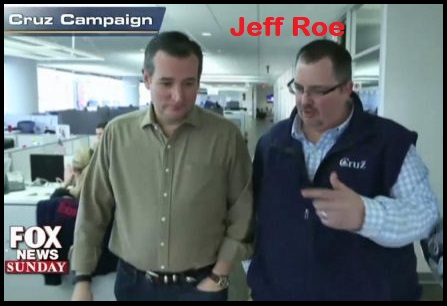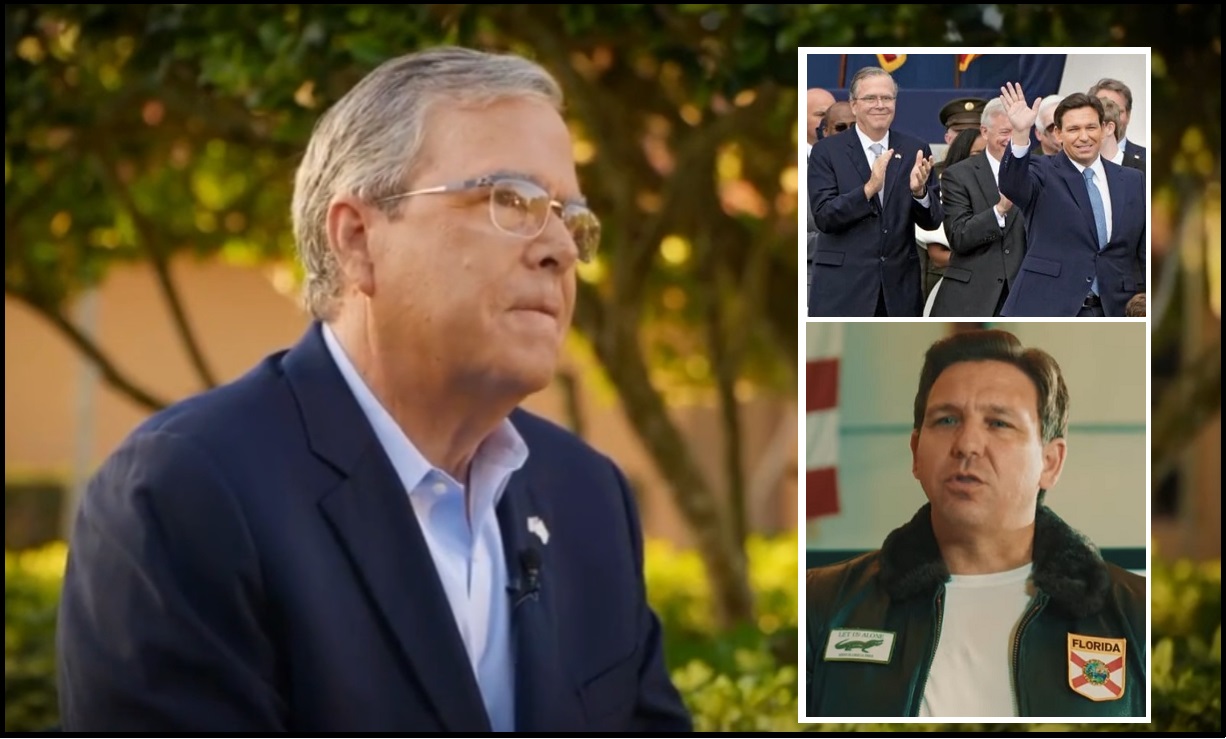Tucker Carlson recently surveyed prospective Republican presidential candidates about their views on the Russia-Ukraine conflict. Respondents included declared and undeclared candidates such as Donald Trump, Ron DeSantis, Nikki Haley, Mike Pence, Mike Pompeo, Vivek Ramaswamy, and a few others. Their answers covered the gamut of possible foreign policy outlooks, ranging from noninterventionism and a kind of modern-day pragmatism to complete revanchist, Bushite neoconservatism.
The diversity of responses is what one might expect from a deeply fractured party with a bustling populist wing—the latter’s tenacity being testimony to MAGA’s enduring prominence within the GOP.
Underscoring MAGA’s prominence are the responses from Trump and DeSantis, who are the leading contenders going into the 2024 presidential primaries. Each man submitted a response that appeared to buck the Washington consensus, which has been overwhelmingly supportive of providing crucial military hardware and virtually unlimited financial support to Ukraine, even to the point of deepening our already pervasive economic woes and crippling the international supply chain.
In short, Washington’s uniparty consensus has internalized the precept that the Ukrainian war is a war of apocalyptic significance, and therefore, the end goal—ousting Vladimir Putin and wholesale regime change in Russia—is apparently justified by any means whatsoever.
So, it’s no surprise that many Republicans submitted run-of-the-mill talking points, echoing the received wisdom of the so-called military industrial complex or “Washington blob.” These statements were replete with Cold War-era buzzwords like “the Reagan doctrine” and countless comparisons of modern Russia with old the Soviet Union.
There was, of course, no shortage of moralistic lecturing on behalf of preserving the “rules-based global order,” an order that allows “no room for Putin apologists in the Republican Party,” as Mike Pence intoned with the indignation of a 1980s televangelist. Though Pence’s statement went the furthest in denouncing Putin, other candidates, from Chris Christie and Kristi Noem to Vivek Ramaswamy, similarly inveighed to varying degrees against “Russia’s aggression” and Putin’s “tyranny,” signaling a frame of reference still rooted in the Cold War.
In contrast, Trump and DeSantis both made efforts to distance themselves from the Washington blob. Rather than pantomime Raytheon and Lockheed Martin catchphrases, they instead either eschewed or outright denounced the suggestion that opposing Russia in the Ukraine was a “vital American national strategic interest.”
Trump denied this in the most emphatic of terms of all, arguing that our commitment in the region was simply not in America’s strategic interest.
Retaining his transactional view of diplomacy, Trump spoke like a dealmaker by asserting that it is Europe’s responsibility to pay “far more than [the United States].” He also promised that, as president, he would end the war “in 24 hours.” Given Trump’s foreign policy achievements while president—ranging from North Korea, where he got Kim Jong Un to agree to a nuclear ceasefire, to Afghanistan, where he set into motion the end of a nearly two decades-long conflict, to Ukraine itself, where Russia ceased aggressive maneuvers in the region while he was in office—there is reason to take his claim as something more than bombast.
For his part, DeSantis offered his best Trump impersonation on foreign policy. The Florida governor’s insistence that the United States should not become “further entangled in a territorial dispute between Ukraine and Russia” at least seemed to incite the ire of David Frum, Bill Kristol, and Jonah Goldberg. At any rate, DeSantis’ supporters have pointed to these reactions as proof that their favored candidate has fully adopted MAGA noninterventionism, a claim ardently contested by Trump supporters who argue the Florida governor’s unexceptional record, which pretty much toed the establishment line on foreign policy, as well as the questionable personal ties some of DeSantis’closest acolytes have to Volodymyr Zelenskyy.
Given that nothing in DeSantis’ background, prior to becoming governor, screams populist or nationalist bonafides on foreign policy, it is important to read DeSantis’ statement carefully. Criticisms from neoconservative pundits aside, many of those mobilizing behind DeSantis’ presidential campaign, including Paul Ryan, Karl Rove, the Murdoch family, and Jeb Bush, might be called neoconservatives or neocon-adjacent. With that consideration in mind, DeSantis’ statements seem far less radical. For instance, his argument that the United Should not become “further entangled in a territorial dispute between Ukraine and Russia” could well be read to mean that the current situation, in which well over $100 billion of U.S. taxpayer dollars has already been expended, is acceptable under a would-be DeSantis doctrine. Not too long ago, Biden himself said he would be interested in meeting with Putin to find “a way to end the war”—suggesting an approach not unlike that advocated by DeSantis.
Beyond that, DeSantis also said that “[t]he U.S. should not provide assistance that could require the deployment of American troops or enable Ukraine to engage in offensive operations beyond its borders.” That statement may appear revolutionary at first glance, but it is totally in keeping with statements made by Joe Biden (“Our forces are not and will not be engaged in the conflict”) and Mitch McConnell (“There will be no American troops on the ground in Ukraine. No one is suggesting that. And that is not something I would advocate either.”).
DeSantis’ declamations against “regime change” in Russia may rally a certain breed of populist pundit, who will try to convince readers that this position represents a radical departure from the uniparty consensus. But that argument quickly loses steam when placed alongside Biden’s repeated denunciations of regime change, to say nothing of similar statements issued by NATO and the international community.
Finally, the telltale sign that DeSantis may not be serious about spearheading a fundamental shift from the uniparty consensus was his usage of the term “blank check.” The phrase, used in the context of critiquing the Biden Administration’s wasteful management of the conflict to date (“The Biden administration’s virtual ‘blank check,’ funding of this conflict for ‘as long as it takes’ . . . distracts from our country’s most pressing challenges”), has repeatedly been offered by other leading Republican establishment figures, from House Speaker Kevin McCarthy (R-Calif.) and former Vice President Pence to Texas Governor Greg Abbott and Senator Tim Scott (R-S.C.). The “blank check” language sounds like a talking point out of the playbook of establishment candidates. For that reason, it is a red flag and in turn signals DeSantis’ propensity to rely on the same interest groups and lobbyists that most other presidential candidates, manicured by the D.C. establishment might use.
In sharp contrast, the “blank check” language is totally absent from Trump’s statement, or from any public statement the 45th president has issued so far about the Ukrainian conflict. Instead, what we see are statements written in his recognizable cadence. Unlike DeSantis’ somewhat ambiguous language, Trump’s statements exhibit his trademark authenticity, and are to the point: totally unequivocal about where he stands on the conflict. That level of precision is ultimately missing from any other candidates’ statement—including the Florida governor’s.
Though it is undeniably good that DeSantis finds it necessary to pay lip service to noninterventionist strategies in order to win over the base, there is still cause to question whether his allegiances are truly aligned with the MAGA base or with the war lobby that remains hellbent trying to involve us deeper in yet another winless war in Eastern Europe.
The world is on the precipice of war. Accordingly, this conflict demands clarity even more than ever, and it is for this reason why Donald Trump towers above the rest. Trump’s statement is one that leaves no question as to where he stands or how he would lead our country should he become president again. The same cannot yet be said about Ron DeSantis.
DeSantis' Ukraine U-turn: Florida Governor now says his 'territorial dispute' comments to Tucker were 'mischaracterized', calls Putin a war criminal with grand ambitions and says Russia is 'basically a gas station with a nuclear weapons'https://t.co/iU5HDCZdoW
— Jack Posobiec 🇺🇸 (@JackPosobiec) March 22, 2023










